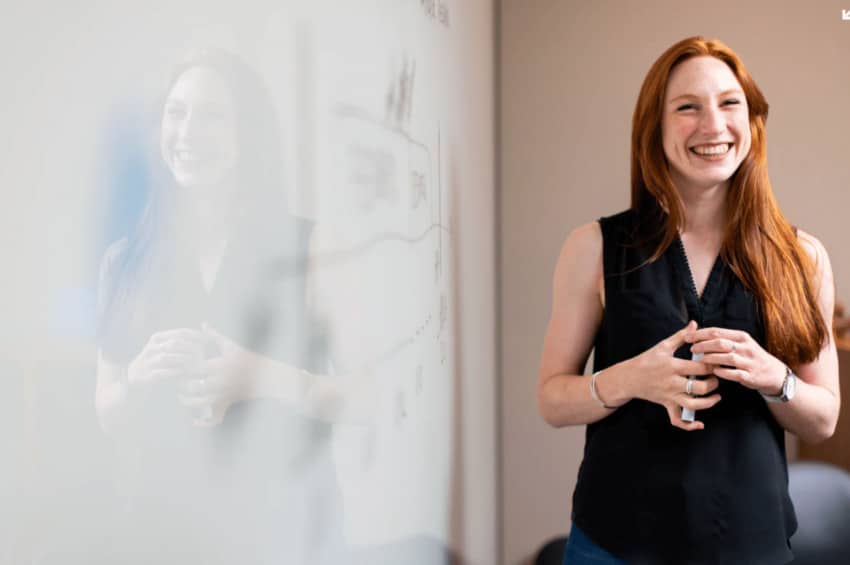What Are The Top 10 Qualities Of A Good Teacher?
Updated: June 19, 2024

Everyone has at least one teacher who they’ll never forget. Teachers have the immense power to change lives and truly impact their students. The field of education is suffering from a shortage of teachers. Even more so, there is always a great need for good teachers. While each student may have slightly different preferences, I’ve compiled some of the best qualities most would agree make a teacher better than average. Ready to answer the question, “What are the 10 qualities of a good teacher?”

Top 10 Qualities That Make a Good Teacher
- Communication skills: On any given day, a teacher is likely to interact with students, colleagues, parents, and administrators. As such, communication skills fall at the top of the list for what separates a mediocre teacher from a great teacher. Communication skills not only mean that a teacher is good at talking and leading a classroom, but they are also great listeners (more on this later). Furthermore, a teacher with good communication skills will know how to take command of the subject they are teaching and explain information at a level that students can understand.
- Engaging teaching style: The truth is that not every student learns in the same way. There are various learning styles. Some students are better at learning visually, or seeing representations and/or pictures of information. On the other hand, others may prefer to listen to audio or a lecture to absorb information. Good teachers are aware that every student has different needs. If one student is falling behind because of the teaching style, a good teacher won’t give up or blame the student. Instead, they can use their communication skills to better understand what the student is lacking. Then, they may be able to adjust their teaching style to engage the student or provide specific activities to help the student learn more effectively.
- Clear objectives for lessons: Just like in business, leaders need to set out objectives and methods by which to achieve them. Most schools have standards set as to what students are expected to know when they advance to the next level. Good teachers prepare lesson plans and have methods to measure their students’ success.
- Discipline skills: Teachers can all share a story or two about an unruly student or group of students. In most instances, students act out in class for reasons other than what’s actually happening in the classroom. For some, it could be a cry for help or attention. For others, it could be a sign that there’s a learning disability going unnoticed. Whatever the reason is, good teachers know how to discipline. Sometimes, it will mean sending a student to a principal or setting up grounds for suspension. But, for others, it could just take a conversation to get to the root of the problem, and a teacher could be the perfect person to help resolve a student’s issue. Furthermore, the ability to command a classroom will also help educators to anticipate a student’s needs and promote strong relationships between teacher and student.
- Patience: One of the most necessary characteristics for a good teacher to possess is patience. Students learn at different paces. It’s up to a teacher to ensure that students feel comfortable and supported along their educational journey. They can let students know that they are available after class for help, may be open to extending office hours, or reiterate that the student has means of support if needed.
- Edtech and technology skills: The landscape of education changes with technology. Blackboards are being replaced by Smart Boards and in-classroom instruction can be replaced by distance learning. The ever-changing world of classroom innovation relies on teachers to be adaptable and adopt new technologies that can benefit the workflow for both student and teacher. For a teacher to be good with new technology, they’ll have to put in the effort to stay up-to-date with the trends and be open to integrating the products in their classroom.
- Passion for teaching: There are several different reasons why people get into the world of education. But the best teachers are born for it. You can tell the good teachers apart by their level of passion that they express. Passionate teachers are the ones who will stay late after class to ensure that their students have the support they need; they are the ones who spend extra time outside of the classroom to come up with ideas for their students; they are the ones who give detailed feedback instead of just checking boxes for grades. Passion comes out in many ways, but these are some examples that set good teachers apart from the average educators.
- Knowledge of subject matter: Of course, as a teacher, you’re expected to be the expert about the subject you’re teaching. While you don’t have to know it all, you have to have a strong and deep understanding of the subject matter. Students will come to you with questions, and it’s definitely best that you know the answers! If you don’t know an answer, the least you can do is provide students with direction as to where to find it.
- Good listeners: As a part of good communication skills, good teachers can better reach their students when they listen to their needs (through active listening). Good teachers are also lifelong learners, and listening to their students gives them the opportunity to learn from them. The world of education isn’t meant to be top-down. It’s interactive, and this means that listening is half of the equation.
- Adaptability: The only thing that’s constant is change. The world, the classroom, and the rate of information exchange continue to shift. The teachers who make the biggest difference in a student’s life are adaptable. They know how to incorporate aspects and events outside of the classroom and bring it within a student’s reach and understanding to connect formal education with life skills. An adaptable teacher also models for students how to be resilient and flexible when events beyond their control take place.
The Bottom Line
A student’s life and future is greatly dictated by their educational experiences. As a teacher, the power is in your hands as to how you choose to approach your students, colleagues, and administrators every day. Practicing the qualities above will surely set you up to leave a positive mark on your students.

